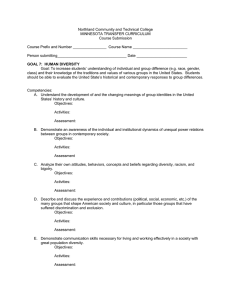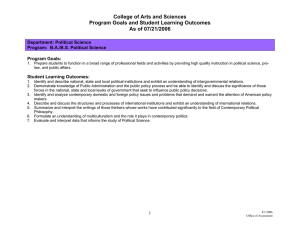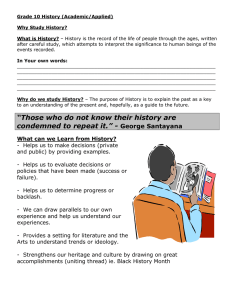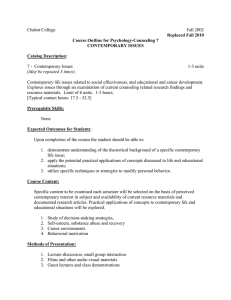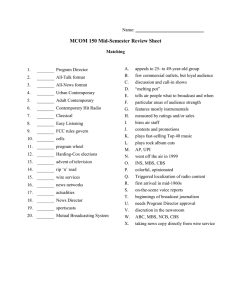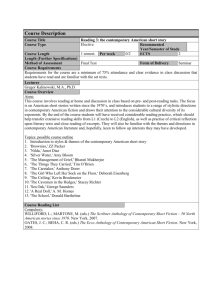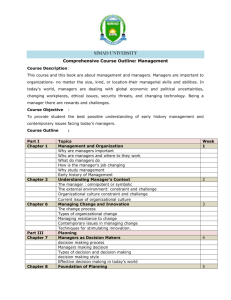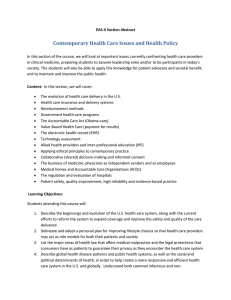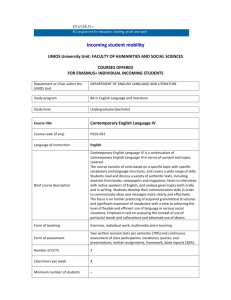Management: Principles and Practices
advertisement
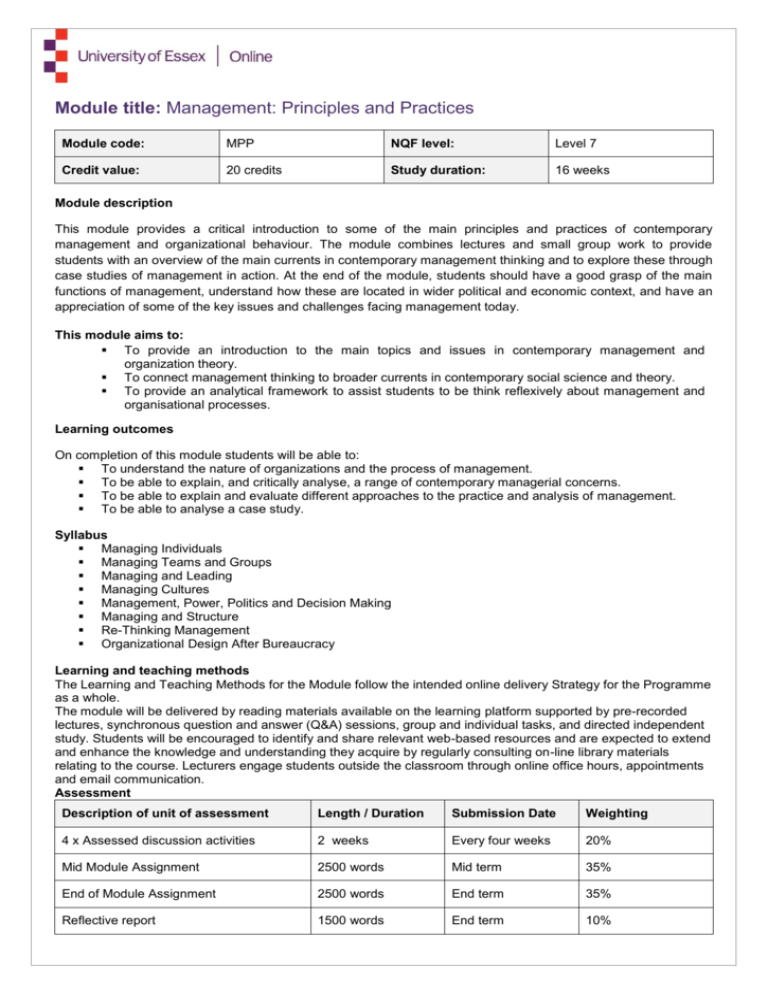
Module title: Management: Principles and Practices Module code: MPP NQF level: Level 7 Credit value: 20 credits Study duration: 16 weeks Module description This module provides a critical introduction to some of the main principles and practices of contemporary management and organizational behaviour. The module combines lectures and small group work to provide students with an overview of the main currents in contemporary management thinking and to explore these through case studies of management in action. At the end of the module, students should have a good grasp of the main functions of management, understand how these are located in wider political and economic context, and have an appreciation of some of the key issues and challenges facing management today. This module aims to: To provide an introduction to the main topics and issues in contemporary management and organization theory. To connect management thinking to broader currents in contemporary social science and theory. To provide an analytical framework to assist students to be think reflexively about management and organisational processes. Learning outcomes On completion of this module students will be able to: To understand the nature of organizations and the process of management. To be able to explain, and critically analyse, a range of contemporary managerial concerns. To be able to explain and evaluate different approaches to the practice and analysis of management. To be able to analyse a case study. Syllabus Managing Individuals Managing Teams and Groups Managing and Leading Managing Cultures Management, Power, Politics and Decision Making Managing and Structure Re-Thinking Management Organizational Design After Bureaucracy Learning and teaching methods The Learning and Teaching Methods for the Module follow the intended online delivery Strategy for the Programme as a whole. The module will be delivered by reading materials available on the learning platform supported by pre-recorded lectures, synchronous question and answer (Q&A) sessions, group and individual tasks, and directed independent study. Students will be encouraged to identify and share relevant web-based resources and are expected to extend and enhance the knowledge and understanding they acquire by regularly consulting on-line library materials relating to the course. Lecturers engage students outside the classroom through online office hours, appointments and email communication. Assessment Description of unit of assessment Length / Duration Submission Date Weighting 4 x Assessed discussion activities 2 weeks Every four weeks 20% Mid Module Assignment 2500 words Mid term 35% End of Module Assignment 2500 words End term 35% Reflective report 1500 words End term 10%
